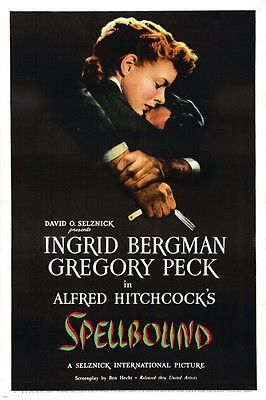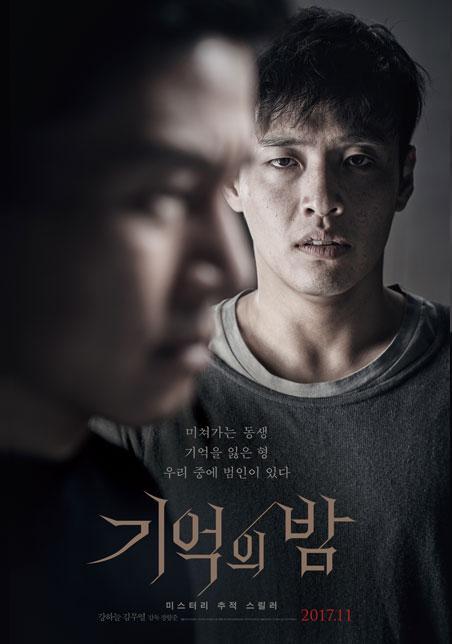
Spellbound dignifies the art of making movies about dreams – the literal ones. Hitchcock, a master of the craft takes a wafer-thin brush and strokes an inquisitive picture of human mind on how it reconciles guilt through memories or the lack of them.
Filmed in black and white, the characters’ emotions get naturally accentuated and stamp the scenes like psychedelic wallpapers. Close-up shots of Ingrid Bergman and Gregory peck expressing how vulnerable they are for each other melts us into a romantic oblivion, sometimes allowing us to blissfully digress from the actual mystery in the sinister symbols of his dream.
Spellbound establishes psychoanalysis of dreams as its clear, recurring motif as scenes unfurl in the mundane world of a mental asylum where patients visit Dr. Constance for therapy sessions involving hypnosis. There’s a lot of references to Freud’s studies and whether they are real or just fantasies of an effervescent mind. But the stage set is so interesting on what could be thrown in the mix as mystery elements for the crime film fans.
As an objective and brilliant psychiatrist, Constance is polite and yet unapologetic about the dark nature of human mind. Her wry sense of humor and acute censor to raise a Berlin Wall against smooth-talking superiors help her get through the job routine effectively.
Constance meets Dr. Anthony Edwards, a savant in the field, who joins the asylum as the new Head and falls for him instantly. Driven by her curiosity over his odd behavior and frequent dizzy spells where he mumbles random words without control, she tries to investigate his mind through unguarded therapy. The story gets twisted brilliantly not as everyone realizes that he is an impostor and the murderer of the actual Anthony but when Constance suspends all logic and upholds absolute faith on his innocence through mere intuition. As we get to a point in a movie where she runs off with him as a fugitive hoping to prove his innocence, we realize that love conquers all.
Though Gregory Peck aptly portrays the sullen fugitive, who is either in a trance or in a confused state, it is Ingrid Bergman who steals the show. Her eyes articulate the story with love and empathy through every mercurial situation and arrests us in admiration of her character. But what is a Hitchcock movie without the technical brilliance? The entire dream sequence, famously pieced together by Salvador Dali, builds the tension towards the revelation and unravels the core aspect of the film with extremely skillful trick-shots and stirring background music, which is the true heartbeat of this mystery. During the skiing scene, sounds of strings elevate us to the peak of suspense, transforming it into a masterclass revelation about his guilt.
Spellbound is a sumptuous treat to psychological mystery fans and when it is done by Hitchcock, it is done right. But how does a woman so strong-willed, intelligent, cold-cut logical and an emotional rock as Constance spontaneously reel into love at first sight? Is love that nuclear? Or do people just think they love a person to define their power of choice? That’s a beautiful mystery that the directors leaves us to solve for ourselves.
